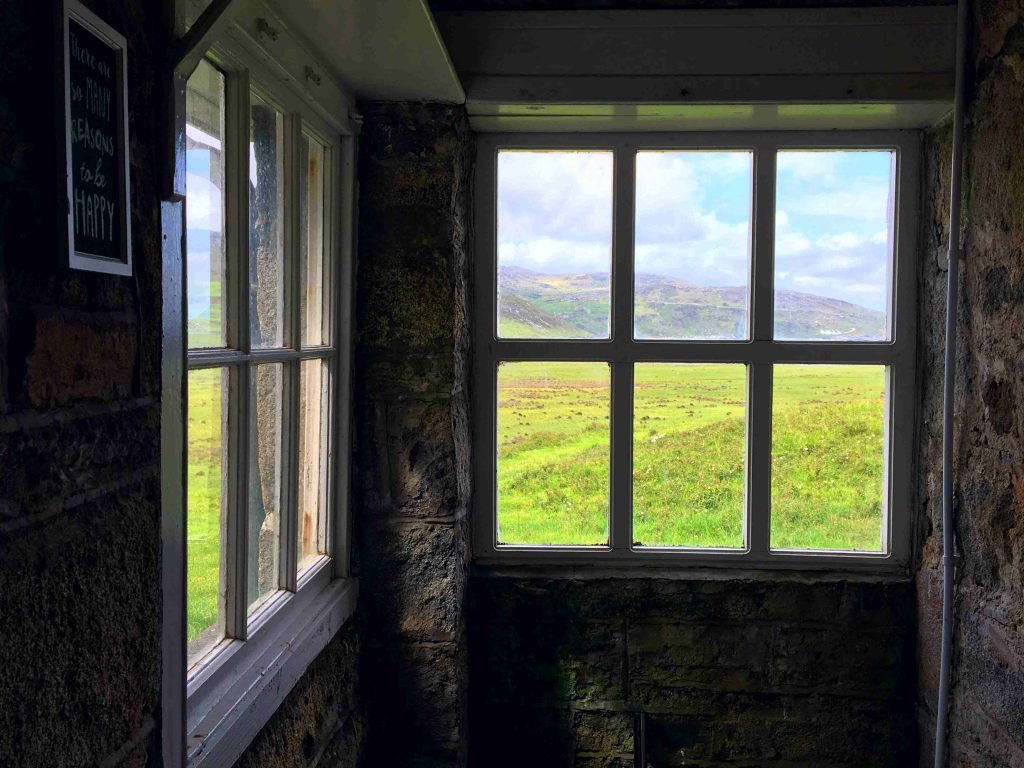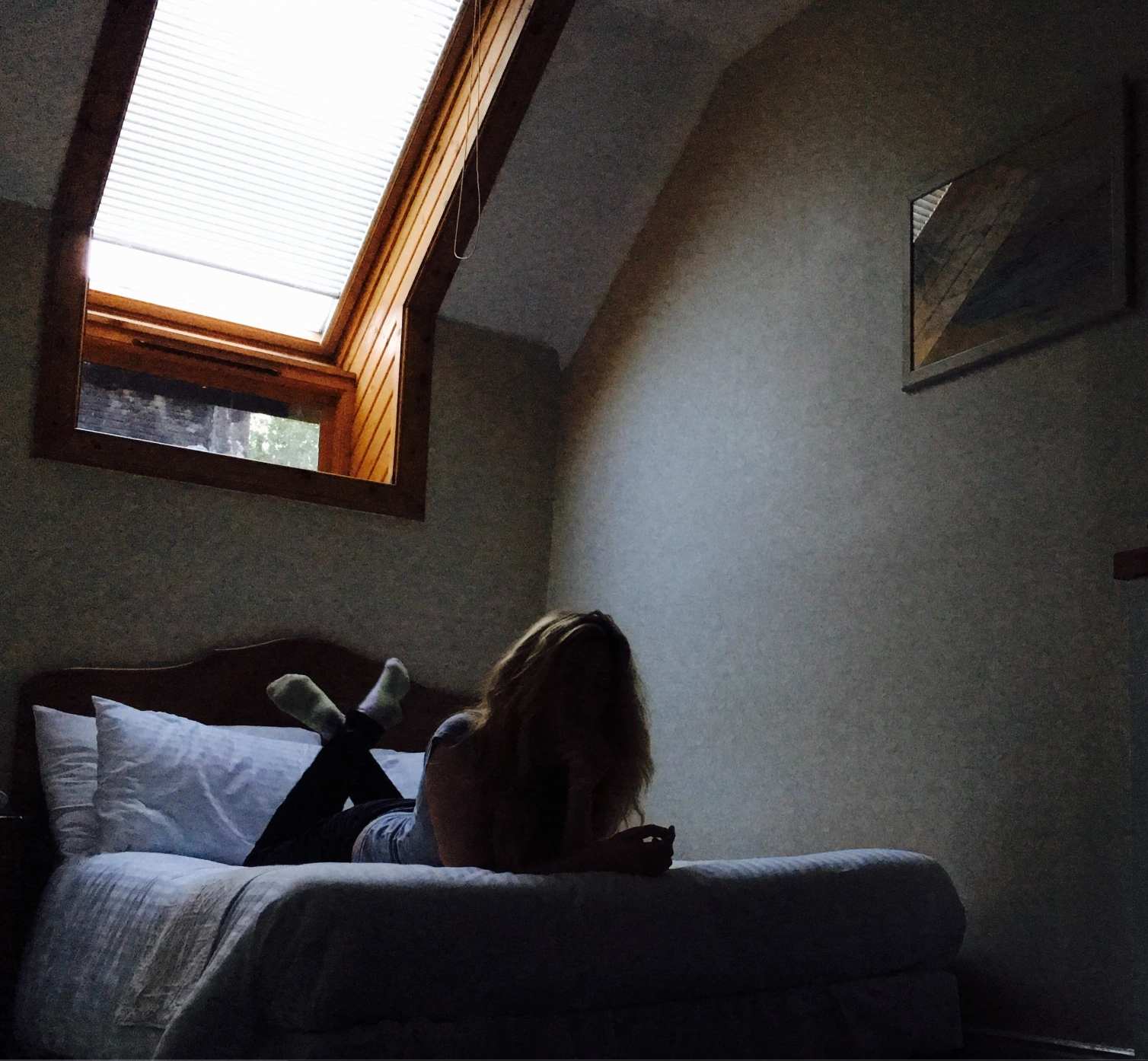Hostels are for the small, the quiet, and the dark.

This I have concluded based on many a travel-wearied night spent in these establishments. Hostels exist in diverse forms, and occupy many a nook and cranny of the world; a plush, repurposed church amidst the misty Welsh mountains. An eight-floored apartment complex with free make-your-own-pancake-breakfast in the heart of San Francisco. A carpeted Niçoise attic next to a beautiful train station.
The upsurge in rapid-fire, solo travel sired a demand for cheap and secure accommodation. Hostels fit the bill. Less expensive than a hotel room, less isolated than couch surfing, the hostel is a minimalistic institution that offers more than the most basic amenities—a clean bed, a toilet, a shower. Hostels offer community, and the security and fortitude one finds in numbers.
In this way, hostel rooms are neither private nor public spaces. They are communal, taken advantage of by patrons and taken care of by those same patrons.
In this way, hostel rooms are neither private nor public spaces.
As a result of this communal identity, the expected behavior of the individuals who occupy hostel beds never changes. For this, there exist three unspoken conventions of hostel living—one must, at all costs remain small, quiet and dark for the duration of one’s stay. My reasoning is as follows.
Small
Space is a luxury backpackers cannot afford. Hostels are typically cheap, and as such must use space efficiently. Often, hostel owners cram as many beds into one room as is physically possible to offset costs, and as such the bed one pays for is the extent of temporary territory a backpacker receives. Should anyone violate this unwritten rule—that is, should anyone sprawl their affairs across the room like the seemingly innumerable rebel bases across the galaxy (I’m talking to you, Avignon-rice-cooker-with-an-entire-suitcase-for-food)—the social consequences may be grave.
I rest my (suit) case; in adherence to Hostel Etiquette, one must take up as little space as possible.
Quiet
I would argue that this is the most important unspoken rule to which a potential backpacker must adhere. Many people float in and out of hostel rooms; to each their own itinerary, and to each their own acoustic contribution. At the same time, hostel attendees typically spend time raiding the city in which they find themselves, meaning that the time spent in the hostel room is intended for rest and rejuvenation. Therefore, I maintain that the hostel room is reserved for quietude, for meditation, regardless of the quantity of individuals sleeping.
The inclusivity of this statement reaches far beyond the spoken word; it means that no music is played without headphones, no rustling around at 6:30 am packing your bags (seriously, elderly travelers in Iceland?), no sex/fooling around in the dorm beds (I’m talking to you, Naples-hipster-couple: keep it in your pants). This convention of hostel quietude is so important, in fact, that many hostels have adopted it as an enforced rule (shout out to my other Italian hostels, you guys had this down.)
Of course, as with all rules of etiquette, there exist exceptions. Snoring is inevitable, and if all dorm residents are in favor of communal noise-making, then let it be so. The default frequency of sound waves in hostel dorms, however, should be nil.
Dark
The only light illuminating a hostel room should be natural light, and even then it should find itself minimal. Returning from the pubs during the wee hours of the morning, and forgot to put your pyjamas in an easily accessible location? Too bad, you must fumble around (minimally; remember the noise rule). You’re getting ready to part for a day trip at 8:00 and want to take a look in the communal mirror? Deal without it. Many a time have I active-aggressively risen from an interrupted nap to turn off the dorm room light rudely infiltrating the closed eyelids of fellow nappers. Hostel-goers must learn to function as cave dwellers and deep-sea-feeders (no echolocation; again, the noise rule). Live without light, or risk communal isolation.
Hostel-goers must learn to function as cave dwellers and deep-sea-feeders (no echolocation; again, the noise rule). Live without light, or risk communal isolation.

Hi. Very well explained the doctrine ,rules, and expectations. What about camp fire outside? 😎. Well done.